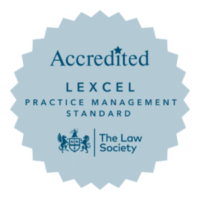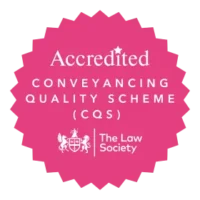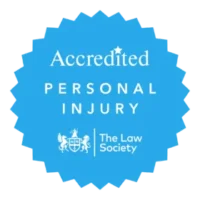
Personal Injury
Personal Injury - The Basics
 Friendly, client focussed specialist Lawyers
Friendly, client focussed specialist Lawyers
 'No win, no fee' funding as standard
'No win, no fee' funding as standard
 Quality legal advice in a way that suits you
Quality legal advice in a way that suits you
 APIL and Law Society accredited Personal Injury team
APIL and Law Society accredited Personal Injury team
What does it mean when we talk about making a Personal Injury Claim?
The term ‘personal injury claim’ is something you may be familiar with. But you may not be entirely sure what it means or how it applies to your circumstances. Or you might think an injury you have suffered means you could make a claim, but you don’t know what to do to progress this or what to expect when you decide to go ahead and make a claim.
At Thatcher + Hallam we hope that no-one ever causes you any harm or injury due to their negligent actions, but if something should happen to you the process of making a claim can often seem a daunting process. Here, we break down the various aspects of personal injury claims and what they mean, so we can hopefully clarify this area of law for you.
I’ve suffered an injury. Does this mean I can make a personal injury claim?
If you’ve suffered an injury as a result of someone else’s negligence then you may be able to make a personal injury claim. You might be surprised at the number of different ways our clients come to harm and end up seeking our help.
To keep things simple, we split injury types into into three categories:
- Road traffic accidents
- Public liability accident (such as if you slip on something in a supermarket and suffer injuries)
- Employers liability (where your employer does or fails to do something which causes injury)
In all the above scenarios it is almost always the case that insurance is available to cover the cost of an injury claim. Essentially, the insurers step in and take over from the person or company that caused you injury.
You can see links to the various injury claims we deal with to the right hand side of this page.
The misconceptions around ‘claim culture’
There is a common misconception that people claiming compensation are greedy and should just ‘get on with it’. However, this is not the case! Here are some of the reasons why making a personal injury claim is the right course of action:
- Injured people who could claim but don’t can end up relying on the NHS for treatment and rehabilitation. This puts more pressure on local health services.
- Rehabilitation for an injury can take months to start via the NHS and in that it might be that the injuries will prevent the injured person from working. This then puts pressure on their home life, family situation and often leads to a need to claim government benefits.
- The injuries caused were preventable. Making a claim often brings about change so other people don’t suffer the same fate in the future. For example, a successful claim could lead to a local Council fixing a loose slab or an employer repairing faulty machinery. Your personal injury claim can make a difference to other people, by preventing future accidents and injuries from taking place.
The bottom line is this. Insurance is there for a reason. It puts a much heavier strain on health services and the Department of Work and Pensions when a claim is not made and the injured person instead has to try and put the pieces of their life back together with no assistance or guidance.
For more information on how injury claims benefit injured people, their families and their lives take a look at the Rebuilding Shattered Lives Campaign run by the Association of Personal Injury Lawyers.
What happens when you contact us about a Personal Injury Claim?
We always recommend instructing a personal injury lawyer if you are making a personal injury claim. This areas of law can be complex and an injury lawyer provides the support and knowledge needed to make the process as straightforward and stress free as possible.
Once you have contacted us, we will have an initial discussion about how the accident happened and the injuries you suffered. At this stage, our legal team are able to assess the potential of the claim and the law applicable to it.
All discussions with us are completely without judgement and we pride ourselves on having a friendly and confidential approach to all matters.
After the initial discussion, the choice is then yours as to whether you would like to proceed with a claim.
Some clients like to wait a short while before proceeding, for instance if they have had extensive surgery or are under pre-existing treatment. However, we would always advise to instruct an injury lawyer, solicitor or experienced legal representative as soon as possible as you only have 3 years from the date of the accident to either settle your claim or take it to court (if you are over 18.)
We act on a ‘no win, no fee’ Conditional Fee Agreement as standard. This is fully discussed with clients when they decide to proceed with a claim. Prospective clients are more than welcome to contact us regarding this method of funding.
What to expect when making a personal injury claim
This is a very basic overview of the claims process:
- We are instructed by the injured person.
- We notify the defendant of the claim and gather the information needed from them to start the claim.
- The claim is started when the defendant insurers are sent a ‘letter of claim’ or receive a claim notification through the Claims Portal from us.
- The defendants provide a liability decision, either accepting liability, accepting liability subject to causation (e.g. they do not agree that the accident caused the injuries or they believe there is an element of contributory negligence) or liability denial.
- If liability is accepted or accepted subject to causation, medical experts will meet with you to assess your injuries and provide a report detailing their opinion and recommendation for treatment.
- If liability is denied this does not necessary mean your claim will end. But it may take a different route which your legal representative will discuss with you.
- Medical evidence is finished, you finish rehabilitation and hopefully you have fully recovered. Financial losses and injury compensation are evaluated by your legal representative.
- Negotiation takes place between the defendant insurers and your lawyer.
- The claim settles, compensation is paid you to you and the claim is settled.
What you can claim for and how compensation is calculated
Compensation is essentially made up of two elements:
- Compensation for the injuries themselves
- Compensation for past and future financial losses and expenses.
Injury compensation calculations
Injuries themselves are valued using the Judicial College Guidelines and associated reported past injury claims from injury solicitors up and down the country. These sources give a near precise indication of how much the injuries would likely be worth in compensation.
We are always very careful and conscientious when it comes to valuing a claim to ensure the best outcome for our clients and that the compensation they receive reflects all post-accident injuries and any continuingsymptoms and issues.
Financial loss assessment
You can claim for a number of financial losses for your assessment. A non-exhaustive list are things such as:
- Loss of income
- Travel to and from medical appointments
- Help and care someone else has provided to you whilst injured for things you would usually do yourself.
- Medical expenses, such as self-funded physiotherapy
- Miscellaneous expenses, such as prescription charges, medications, ruined clothing, broken personal effects, etc.
- Future expenses (e.g. if the medical expert says you need physiotherapy for the rest of your life, this would be added to future expenses).
We would advise anyone who has had an accident, even if they have not yet decided whether they will make a claim, to keep a record of all of the above so that every expense, no matter how small, can be claimed back.
Ready to talk to one of our team about your accident and injuries?
There are a number of ways to contact us to find out more. We offer a free 30 minute initial no obligation discussion about your accident, injures and the claims process, you can access this via our free legal advice surgery, telephone (01761 414646), email (enquiries@th-law.co.uk) or via our online form.
Our Experts
Speak with us today to find out how we can help







